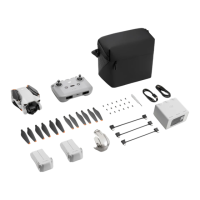Australia
Flight
Safety
Rules
•
Australian Government
C'hiJ
A,iation
SafetJ
.
.\utborit')
KN®W
Y©UR
DR©NE
TO
FIND
OUT
WHERE YOU CAN
AND
CAN'T FLY,
USE
A CASA-VERIFIED
LOCATION-BASED
MOBILE
OR WEB APP.
You
must
not
fly your
drone
higher
than
120
metres
(400 feet)
above
ground
level.
If
yotfre
near
a
helicopter landing
site
or smaller aerodrome
without
a
control
tower, you
can
fly
your
drone
within
5.5
kilometres.
If
you
become aware
of
manned
aircraft
nearby,
you
will
have
to
manoeuvre
away
and
land
your
drone
as
quickly
and
safety as
possible.
.....
~
ffi~
You
must
not
fly
your
drone
over
or
near
an
area affecting
public
safety
or
where
emergency
operations
are
underway. This
could
include situations
such
as
a car crash,
police operations, a
fire
or
firefighting
efforts
or
search
and
rescue.
You
must
keep
your
drone
at
least
30
metres
away
from
other
people.
You
must
not
fly
over
or
above
people
or
m
a
populous
area.
This
could inctude beaches,
parks, events,
or
sport
ovals
where
there
is a
game in progress
®
If
you
Intend
to
fly
your
drone
for
or
at
work
(commercially),
there
are
extra
rules
you
must
follow.
You
will
also
need
to
register
your
drone
and
get
a licence
or
accreditation.
Respect personal You
must
only
fly
one
privacy. Don't
record
drone
at
a
time.
or
photograph
people
without
their
consent-
this
may
breach
other
laws.
If
your
drone
weighs
more
than
250 grams,
you
must
fly
at
least 5.5
kilometres
away
from
a
controlled
airport,
which
generally have a
control tower
at
them.
You
must
keep
your
drone
within
visual
line-of-sight.
This
means
always being
able
to
see
the
drone
with
your
own
eyes
(rather
than
through
a device, screen
or
goggles).
~G}9iii}
Remember,
you
must
not
operate
your
drone
in
a
way
that
creates
a hazard
to
another
aircraft,
person
or
property.
You muse
only
fly
during
the
day
and
you
must
not
fly
through
cloud
or
fog.
I
H>
KNOWYOURORONE.GOVAJ
New
Zealand
Flight
Safety
Rules
Share
The Skies
Consider others,
be
responsible
//
Rule #1
Fly
no
higher
than
120m
(400ft)
above
the
ground.
This keeps
your
drone
below
the
height
of
other
aircraft.
Rule
#2
Stay a
safe
and
considerate
distance
away
from
people
and
buildings.
Don't
fly
directly
over
people, unless
they
say it's OK.
Rule
#3
Don·t
fly
over
prtvate land,
such
as
farms
or
houses, unless
the
owner
says
it's
OK.
Check
with
the
local council
or
the
Department
of
Conservation
before
flying
in
public
areas such as parks, beaches
and
reserves.
Rule
#4
Keep
your
drone
in
sight
at
all
times.
Fly
only
in
daylight
and
when
the
visibility is
good
-
stay
clear
of
fog
and
cloud.
Rule
#5
Stay 4
km
away
from
anywhere
aircraft
are
landing
or
taking
off.
This includes helipads
at
hospitals
and
those used
by
sightseeing aircraft.
Be
aware
that
controlled airspace
around
airports
extends
well
beyond
the
4
km
limit-you
must
have clearance
from
air
traffic control
to
operate
in
that
area. Don't fly in special
use
airspace. such as
low
Flying Zones. danger, restricted
or
Military Operating Areas.
Rule
#6
It's
dangerous
to
fly
drones
anywhere
other
aircraft
are
operating.
tf
you
see
another
aircraft, stay well clear
of
it
and
land immediately.
No
-
fly
zones
Know
the
no-fly
zones.
To
see a
map
of
these no-fly zones,
or
to
apply
for
a clearance
to
fly
your
drone
within
controlled airspace,
go
to:
airshare.co.nz
Preflight checklist
like
any pilot. you need
to
do
a preflight
check.
0 Check
the
tech
Make sure
the
battery
is
fully
charged
and
all
drone
components
are
secure
and
undamaged.
4)<,
Scan
the
land
Your
flying
area
must
be
clear
of
people,
animals,
or
anything
that
might
cause
problems,
such
as
powerlines.
Get
permission
if
you
plan
to
fly
over
people
or
private
property,
or
stay
well
away
<®
Eyes
on
the
drone
You
must
always
be
able
to
see
your
drone.
Fly
it
no
higher
than
120
m (400
ft)
above
ground
level,
and
only
in daylight,
avoiding cloud
or
fog.
ti5
Check
for
no-fly zones
There are
many
areas
you
can't fly a drone, such as zones
that
extend
around
airports.
Know
where
you're
allowed
to
fly,
and
where
you
need
to
ask
for
clearance first.
'if
Be
ready
to
land
If
you
see
another
aircraft.
or
an
emergency situation unfolding.
Immediately
land
your
drone.
Training
Get some training
to
help you better understand how
to
fly
within
the
group
of
Civil
Aviation
Rules
known
as
'Part
101'.
If
you
can't
fly
your
drone
according
to
these
rules.
you
must
get
an
Unmanned
Aircraft
Operator
Certificate
under
'Part 102·.
Find
more
information
about
how
to
get
that
certificate,
and
a list
of
approved
training
organisations
at:
aviation,govt.nz/drones
For
more
information
about
flying
your
drone
.
aviation.govt.nz/drones
To
contact
the
CAA
for
advice
drones@caa.govt.nz
See
the
full
rules
and
variations
affecting
drones
at:
aviation.govt.nz/drones
You
must
follow
the
New
Zealand
Civil
Aviation
Rules
when
flying
your
drone.
Complying
with
them
can
also
help
you
avoid
fines
or
prosecution.

